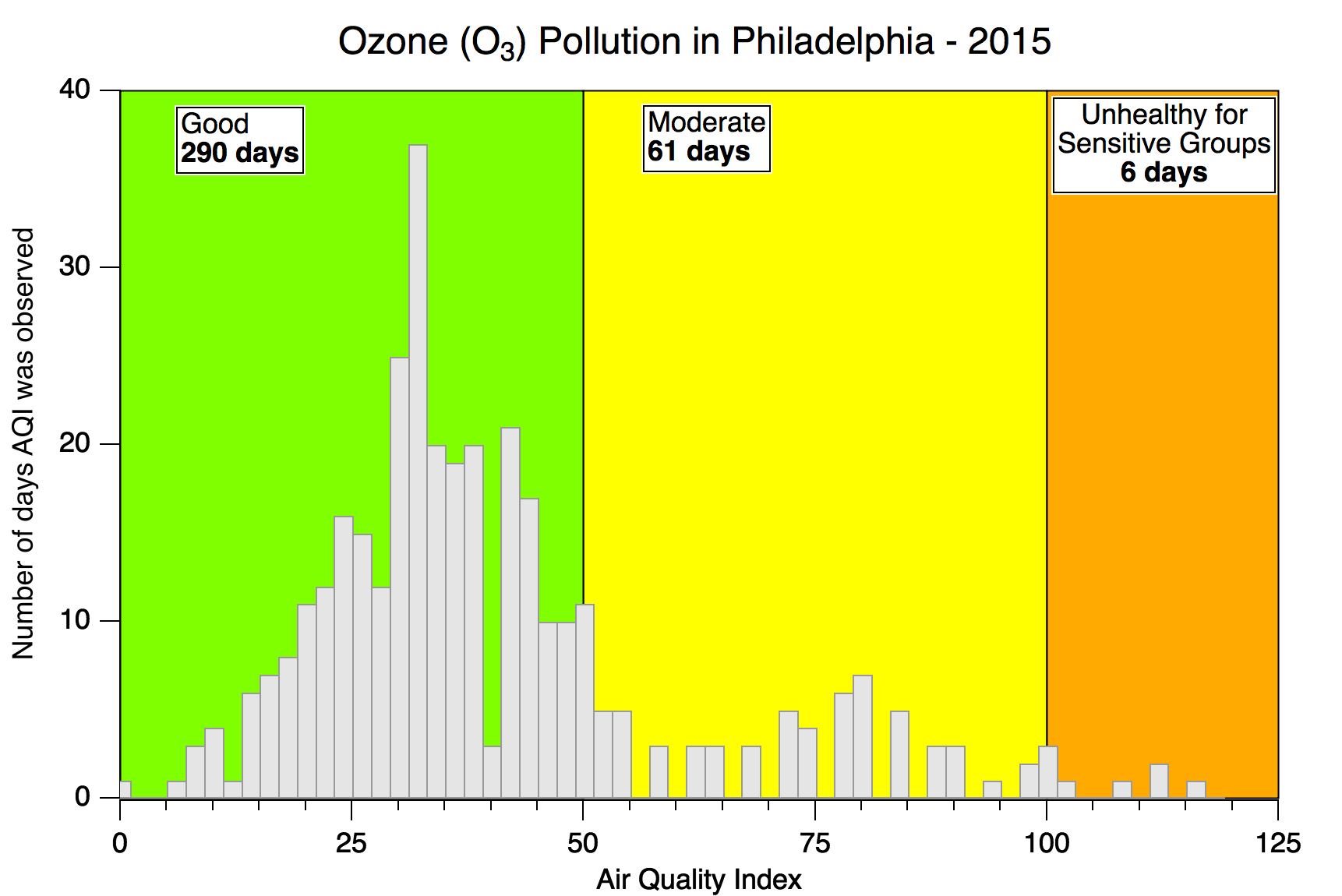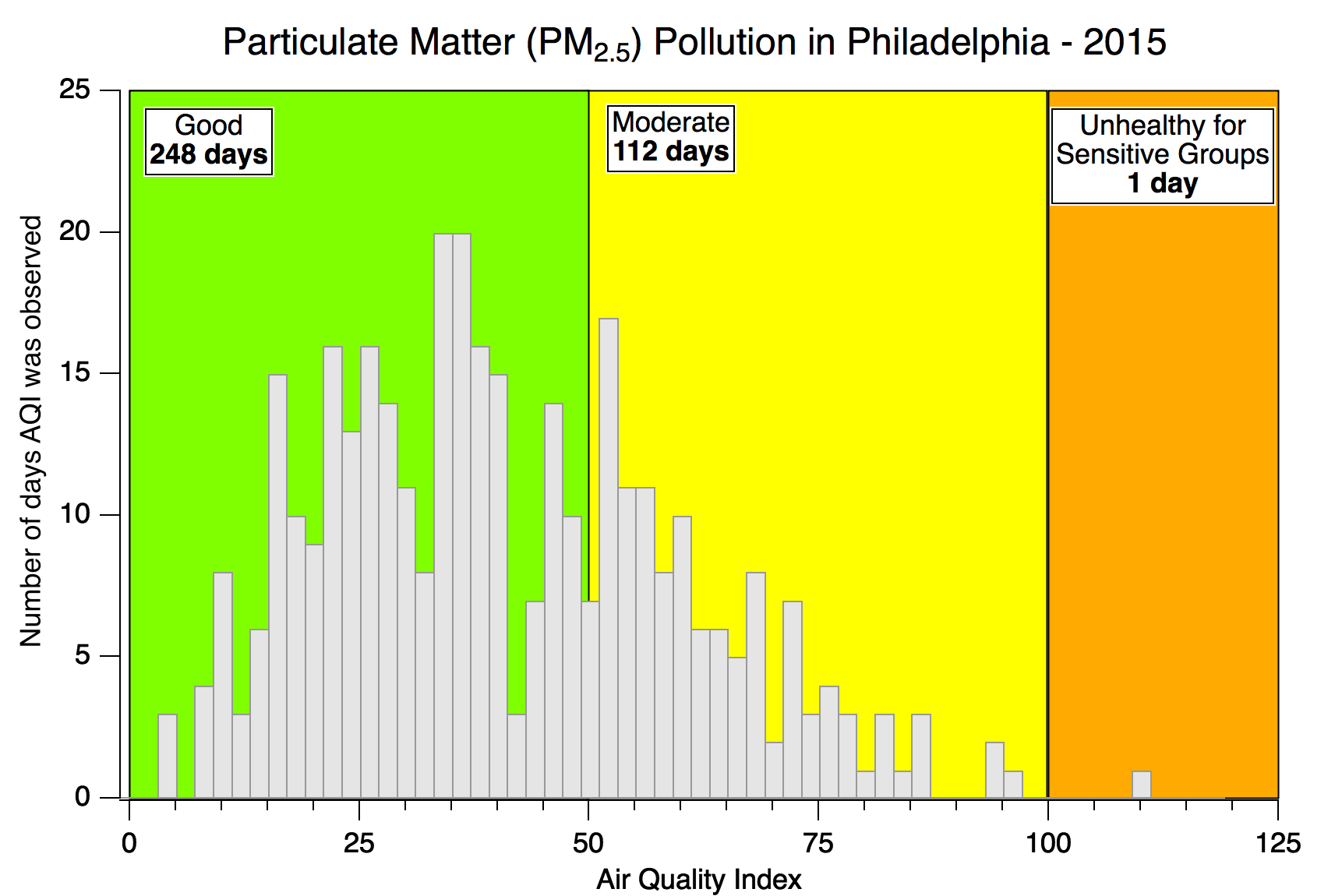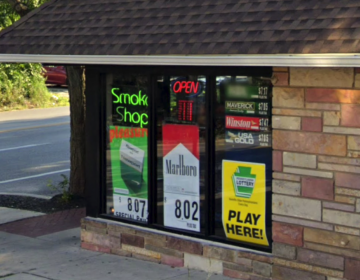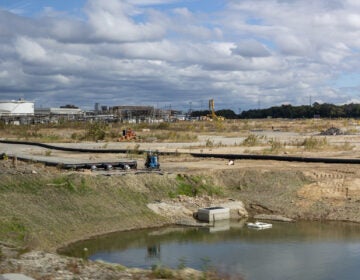Philly parents rally for a smog-free spring
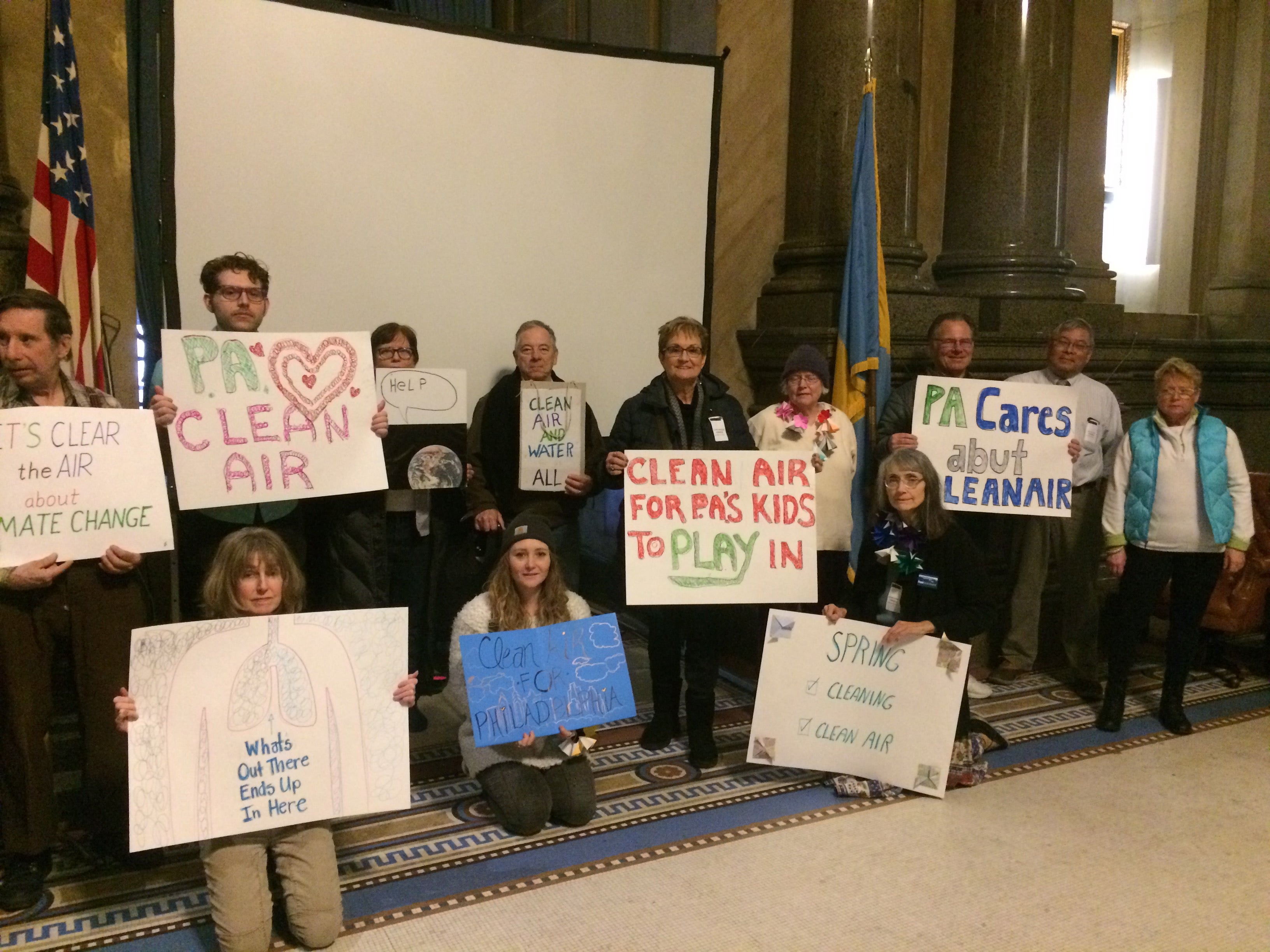
It’s time to smell the flowers.
Despite the snow on the ground, spring officially started on Tuesday and a group of Philly parents wants you and your family to be able to breathe in the warm air without any unwanted additives.
“Philadelphians want to be able to walk along the Schuylkill, play in Fairmount Park, and wander around the city during the summer and spring, and they want to be able to do it without worrying about choking on smog and soot or without entering into an asthma attack,” Flora Cardoni, an organizer with PennEnvironment, said at a rally for clean air held on Tuesday at City Hall.
According to a PennEnvironmental report, one out of every four days the air was moderate to severely unhealthy in Philadelphia because of smog from cars, the Philadelphia Energy Solutions refinery in South Philly, and other sources. That’s including moderate levels of health concern from the Air Quality Index when air quality is acceptable, except for people who are “unusually sensitive to ozone.”
Mollie Michel, a member of Moms Clean Air Force. said as the days get hotter, high ozone alerts start becoming more often, which means she often decides to avoid letting her daughters outside the house.
“Think for that for a second — I am afraid to let my children play outside because of air quality,” said Michel. “That’s unacceptable.”
Christine Knapp, director of Philadelphia’s Office of Sustainability, said according to the Air Quality Index data, there were 186 “good” air quality days. “That’s about half of the year that had good quality.” Knapp added “moderate” days are not unsafe.
Peter DeCarlo, a climate and air pollution scientist at Drexel University, agrees with Knapp. The vast majority of days in Philadelphia are in the good and moderate categories determined by the Environmental Protection Agency, he said, “and are not considered to be bad air quality days.”
“While it is certainly true that the air quality in Philadelphia can be improved, I would not hesitate to take my two little boys outside on a nice day when the air quality index is moderate or better,” DeCarlo said. “We just try to avoid playgrounds next to industrial facilities or high-traffic streets.”
Michel blames the oil refinery for most of the toxic air emissions in the city and said elected officials must do everything in their power to resist industry forces and ensure the safety of children. Environmental activist Ron Whyte from Deep Green Philly said people should take legal action against PES.
The refinery is Philadelphia’s single largest stationary source of particulate pollution and alone accounts for nearly 16 percent of Philadelphia’s carbon footprint, according to city data. The tiny, toxic particles released by its smokestacks can damage lungs and cause respiratory diseases.
“In a city where the childhood asthma rate is more than twice the national average — and four times the average in certain zip codes — this polluting refinery is a direct threat to the health of our city’s children,” Michel said.
Because asthma has multiple causes — cigarette smoke, mold, cockroach waste — the high levels of asthma in the city can’t be attributed exclusively to any one source, according to health experts.
Still, Clean Air Council’s Russell Zerbo said Pennsylvania needs to get serious about reducing its use of fossil fuels.
“The pediatric asthma hospitalization rate in Philadelphia is the lowest its been in 15 years and it’s still five times higher than in Los Angeles County,” Zerbo said.
PES declined to comment.
Marayah Roher is a high school senior at Sankofa Freedom Academy Charter School in East Kensington and a PennEnvironment intern. She said that as she was growing up, she felt less cool because she was the only person not using an asthma pump. That was until she found out what they were for. She said many of her classmates miss school days and class because of asthma.
“I play basketball for my high school in Kensington and almost every single game someone gets an asthma attack and forces us to stop playing,” Roher said.
Democratic State Reps. Brian Sims and James Roebuck said elected officials have the responsibility to fight back on federal attacks on the environment such as proposed budget cuts to the U.S. Environmental Protection Agency and the Trump administration’s plan to repeal regulations that limit the amount of pollution that factories and other smog-generators are allowed to emit. He encouraged voters to remind their elected officials to keep in mind the impact these policies have on health.
“If you are a parent, a teacher, if you’re a student, if you are an employee or an employer — my colleagues need to hear from you about how your day, your life, your work is impacted by a lack of environmental legislation,” Sims said. “This isn’t a problem that we don’t know how to solve, it’s elected officials that are refusing to solve it. Hold them to the fire.”
Cardoni said the city is doing a lot on a local level but still need to hold polluting industries accountable and make sure they’re within the law. The organization also thinks the city “definitely needs to do more” to expand electric vehicle infrastructure, and it recently published a report with tips for cities to do so.
On the federal and state level, she said, “we are playing defense right now.”
WHYY is your source for fact-based, in-depth journalism and information. As a nonprofit organization, we rely on financial support from readers like you. Please give today.



